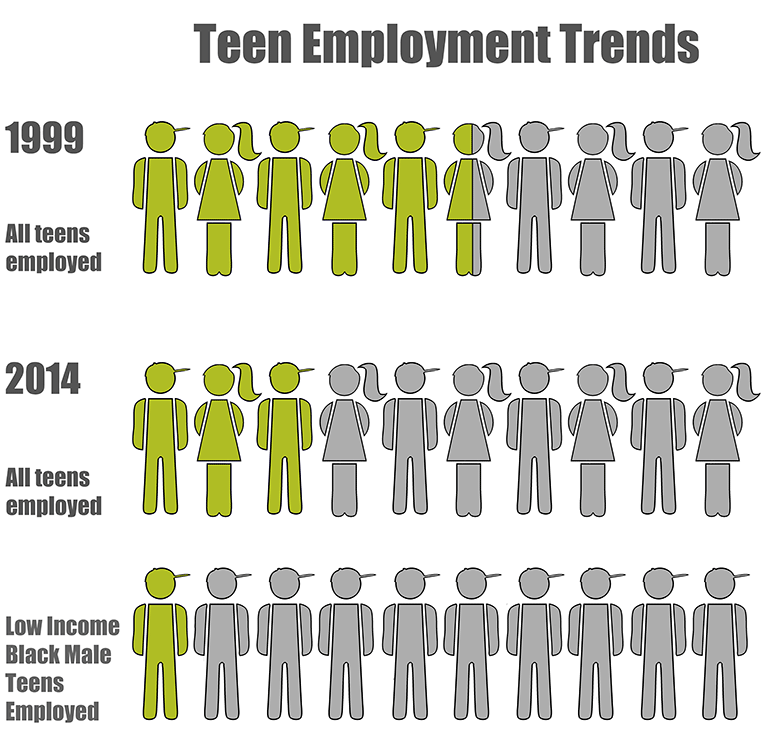
Youth Employment Research & Case Studies
Work matters. Research shows that early employment translates to higher earnings, greater access to health care and stronger educational attainment, but teens are losing ground. Teen employment rates have declined dramatically and employers report that lack of soft-skills are to blame.
Understanding the Problem
Employment rates among teens have dropped nearly 50% since the late 1990s. More than half of today’s high school students have no work experience, and some groups suffer even lower employment rates. For example, in 2013, white male teens from high income families were five times more likely to be employed than African American male teens from low-income families.
Research shows that young people who work part time in high school have 22% greater annual earnings in their career. They are also more likely to earn a bachelor’s degree, work in higher-level jobs, have access to healthcare and retirement plans. With so many young people losing ground, Commonwealth Corporation and Drexel University conducted a study to better understand the problem.
- Download the Full Study


Signal Success in Schools & CBOs
Over 50 organizations have used Signal Success to help young people become career-ready. The curriculum and programming helped launch new career and work readiness initiatives and also helped existing youth employment programs improve their offering and results. Across different implementation models, the common thread is strong skill gain and increased planning for work and career. To learn more about the results of specific programs, download the cases studies below.
Educators, Students & Employers Agree
Educator Testimonies
Student Testimonies
Employer Testimonies
Contact Us
Subscribe to Receive our Emails
By submitting this form, you are consenting to receive marketing emails from: . You can revoke your consent to receive emails at any time by using the SafeUnsubscribe® link, found at the bottom of every email. Emails are serviced by Constant Contact

